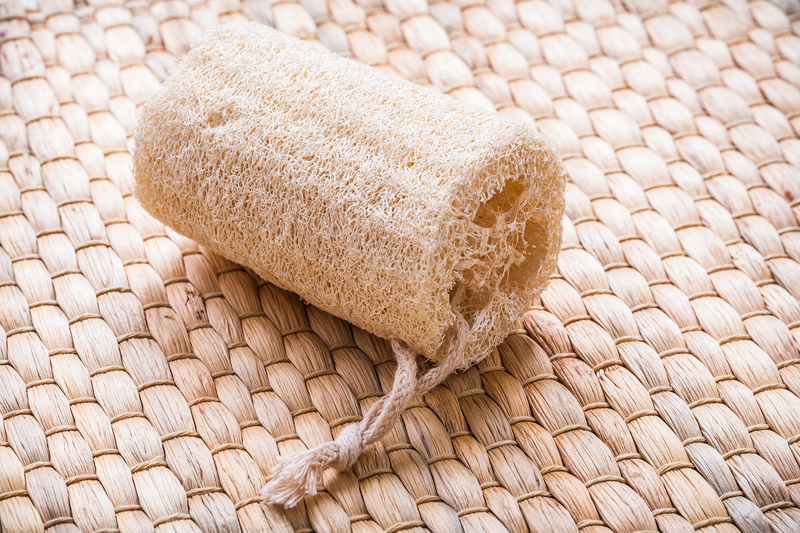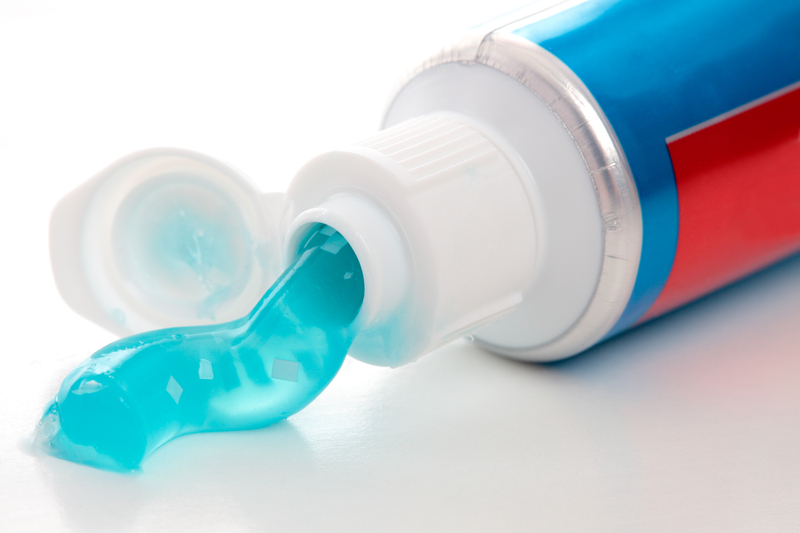Home Care Tips: Rid Your Space of All Pet Smells
Posted on 19/06/2025
Home Care Tips: Rid Your Space of All Pet Smells
Are persistent pet smells taking over your living space? You're not alone! While our furry, feathered, and even scaly companions are beloved family members, they tend to bring odors along with their endless affection. Whether you're dealing with doggy dampness, feline funk, or the subtle scent from smaller critters, it's completely possible to keep your home smelling fresh and clean. This comprehensive guide will help you learn effective, science-backed strategies and home care tips to banish all traces of pet odors for good.
Why Do Pet Smells Linger in Homes?
First, it's important to understand why pet odors are so persistent. The following are the primary reasons behind those stubborn smells:
- Natural Oils & Dander: Dogs, cats, and other furry pets produce natural oils in their skin, which can seep into carpets, rugs, furniture, and bedding.
- Accidents & Messes: Even the most well-trained pets may have occasional accidents, with urine, feces, or vomit soaking into porous surfaces or fabrics.
- Bacterial Action: When organic matter sits, bacteria break it down, releasing unpleasant byproducts and amplifying pet odors.
- Pet Bedding & Toys: Frequently used beds, blankets, and toys absorb scent over time and can re-emit odors even after your pet leaves the room.
- Poor Ventilation: Inadequate airflow allows smells to become concentrated and linger longer.
Now, let's dive into expert home care tips to effectively eliminate pet smells from every corner of your space!

The Ultimate Home Care Guide: Banishing Pet Odors
1. Deep Cleaning is Non-Negotiable
The foundation of any pet odor removal strategy is a thorough, regular cleaning routine. Pet smells seep deep into fibers, floors, and surfaces--so surface-level cleaning often isn't enough.
- Vacuum Frequently: Vacuum carpets, rugs, and upholstery at least twice a week, and daily in high-traffic areas or multi-pet households. Use a vacuum with a HEPA filter to trap dander and hair efficiently.
- Wash Pet Bedding & Fabrics: Wash all removable fabrics--pet beds, blankets, slipcovers--once a week in hot water. Add half a cup of baking soda for extra odor-fighting power.
- Steam Clean Regularly: For persistent odors in carpets and upholstery, consider using a steam cleaner. The high heat penetrates and dissolves oily residues and kills bacteria.
- Mop Hard Floors: Mop tile, vinyl, or hardwood floors with a pet-safe disinfectant weekly to remove any stains or residues.
2. Tackle Pet Accidents Immediately
Prompt action is key when your pet has an accident! The longer urine, feces, or vomit sits, the deeper it soaks in and the worse the smell gets.
- Blot, Don't Rub: Immediately blot up as much liquid as possible with towels or paper towels. Rubbing spreads the mess and pushes it deeper.
- Enzymatic Cleaners: Use an enzymatic cleaner designed specifically for pet stains. These break down odor-causing molecules entirely, rather than just masking odors.
- Let it Air Dry: Allow the cleaned area to air dry thoroughly. Avoid using heat, which can set stains and smells.
3. Smart Solutions for Common Pet Odor Zones
Odors are especially stubborn in certain spots. Here's how to target the most problematic pet odor zones:
Pet Beds & Kennels- Wash or replace bedding regularly.
- Sprinkle baking soda between washes, let sit, and vacuum up.
- Disinfect hard crates or kennels with a diluted white vinegar solution.
- Invest in washable slipcovers for sofas and chairs.
- Use upholstery sprays made to eliminate pet odors, not just cover them up.
- Professional cleaning once or twice a year can make a big difference.
- Baking soda is your friend! Sprinkle liberally, let sit several hours or overnight, then vacuum up thoroughly.
- Use a carpet shampoo with natural deodorizers.
- Don't forget to treat the carpet pad if odors are very stubborn.
- Scoop litter boxes daily and change out all litter at least twice a week.
- Thoroughly wash the box with soap and hot water every week.
- Use odor-control litters and add a sprinkle of baking soda for extra freshness.
- Cages for rodents, rabbits, or birds should be cleaned and bedding replaced a minimum of once a week.
4. Maintain Healthy Pets for Fewer Smells
Sometimes, chronic pet odors signal an underlying health or hygiene issue. By maintaining your pet's well-being and cleanliness, you'll minimize potential smells.
- Routine Baths: Bathe dogs every 4-6 weeks (breed and coat type dependent), and wipe cats and small pets with unscented pet wipes as needed.
- Grooming: Regular brushing reduces shedding and distributes oils, and ear cleaning prevents stinky infections.
- Dental Care: Bad breath can permeate a room! Brush your pet's teeth or provide dental chews/toys.
- Diet & Health Issues: Foul odors can indicate skin problems, ear infections, or digestive issues. Consult your vet for persistent smells.
5. Air Circulation: Your Secret Weapon
If air is stagnant, even mild pet odors can become overpowering. Encourage fresh air movement to keep your home odor-free.
- Open Windows: Aim to open windows for 10-30 minutes every day to let fresh air in.
- Use Fans: Ceiling and portable fans help distribute air (and disperse smells).
- Install Air Purifiers: HEPA air purifiers can trap dander, dust, and odor particles. Opt for models with activated carbon filters for extra odor absorption.
6. Natural Deodorizers vs. Synthetic Fragrances
While chemical air fresheners may mask odors in the short term, they don't tackle the root cause--and many just layer harsh scents atop unwanted ones. Instead, opt for
- Baking Soda: Absorbs odors from carpets, furniture, or even open bowls placed in odor-prone zones.
- White Vinegar: Great for wiping down floors and surfaces where pets frequent (dilute 1:1 with water for safety).
- Lemon Juice: Naturally cuts through grease and leaves a fresh scent.
- Activated Charcoal: Place bags in musty corners or near litter boxes to trap lingering smells.
- Houseplants: Some plants, like spider plants, snake plants, and peace lilies, help filter air and reduce household odors (make sure the plants you choose are pet-safe!).
7. Proactive Prevention: Keeping Pet Odors from Coming Back
Once you've refreshed your space, a little prevention will keep it that way. Here are proactive habits for ongoing home care:
- Pet Designated Spaces: Train pets to favor specific spots with easy-to-clean surfaces (like washable throws, mats, or pads).
- Spot Cleaning Tools: Keep a small kit of pet-safe cleaning sprays, wipes, and towels handy for immediate action.
- Regular Check-ups: Stay on top of veterinary wellness visits to address health issues before they manifest as odors.
- Grooming Routine: Create a regular schedule for bathing, brushing, and dental care.
- Monitor Litter & Cages: If you have multiple pets or a sensitive nose, consider an extra litter box or changing bedding more frequently.

FAQs: All About Getting Rid of Pet Smells at Home
How do I get rid of dog smell in my house fast?
Start by opening windows to air out the space. Vacuum all soft surfaces, mop hard floors, and use a pet-safe enzymatic cleaner on any suspected accident sites. Wash pet bedding and spritz with a water and vinegar solution for immediate freshness. Activated charcoal bags can help absorb lingering dog odors.
Can pet odors permanently damage my home?
Persistent pet urine left untreated can seep into hardwood, carpet pads, or even drywall, causing lasting damage and tough odors. Prompt, thorough cleaning with enzymatic products is essential to prevent permanent pet odor problems.
Are scented candles or air fresheners safe for pets and effective against odors?
Many commercial air fresheners, plug-ins, and some scented candles release chemicals that may be harmful to pets and only mask odors. Instead, focus on natural deodorizers (like baking soda, vinegar, and safe essential oils) combined with good cleaning.
How can I make my house smell good even with pets?
Consistency is key! Establish a regular cleaning schedule, keep pet grooming up-to-date, and use air purifiers. Incorporate natural odor absorbers and be sure to address accidents immediately. Adding houseplants and practicing good ventilation also keeps your home smelling fresh.
Why does my house still smell like pets even after cleaning?
Pet odors can hide in unexpected places--under furniture, behind appliances, or deep in HVAC vents. If you've cleaned carpets and fabrics thoroughly and still notice an odor, check for hidden accidents, and use an enzymatic cleaner. Sometimes professional cleaning or vent/duct cleaning is necessary.
Conclusion: Enjoy a Pet-Friendly, Odor-Free Home
Living with pets doesn't have to mean living with unpleasant odors. By combining diligent cleaning, smart preventive habits, and a little science-backed know-how, you can eliminate pet smells and enjoy a home that's inviting to everyone--two- and four-legged alike. Commit to these home care tips, and your home will stay fresh, healthy, and happy for every family member.
Ready to reclaim your space from pet odors? Let these strategies guide you, and breathe easy in your revitalized, clean-smelling home!


